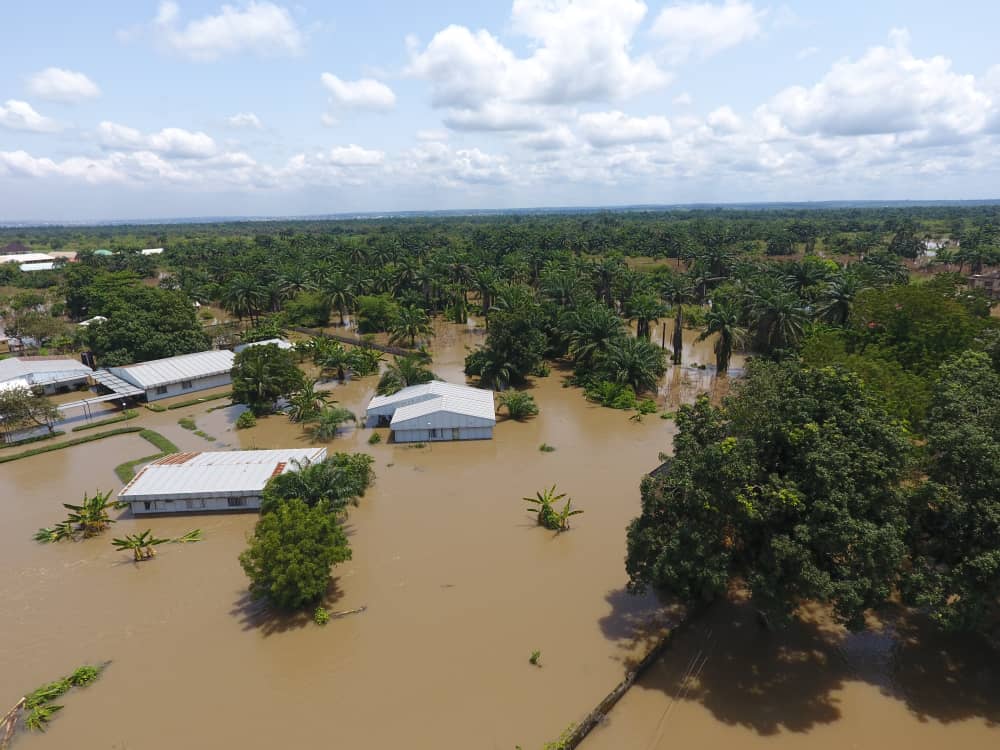People from the riverine areas have a unique way of life that they have adapted to so naturally that many others who come from ‘enu ani’ (upland) as they say, may not easily understand the stress they are passing through as a result of flooding.
Riverine communities are found on low lying plains along major rivers and oceans. Fishing and farming are their major occupation. River ways are a normal trade route, and so canoes, engine boats and ships are routine vessels for transportation.
Firstly, the riverine communities have a different farming season for a reason. These people must begin to farm as soon as the flood recedes. That is usually around November. Or else they don’t stand a chance to harvest their produce.
In recent times, people from the riverine have been advised to grow more of shorter duration crops so that they can harvest 2 to 3 farming cycles during the farming season before the floods set in. Harvesting of farm produce in flood prone areas like Ogbaru, Anambra West, Anambra East, Ayamelum and some parts of Ihiala, usually starts in late June and peaks in July and August. Anything left in the farm after September is left to chance. This is when the ocean or river tide rises with the water levels and overflows the banks resulting to flooding of riverine communities.
The rising of the ocean levels, which is called ‘iju’ or ‘iji’ usually occurs every year, albeit with varying intensities. Anambra State, Nigeria and the rest of the world all witnessed the 2012 flooding which covered houses and stripped poor citizens of their homes and livelihoods. Lives were lost as well.
Well this year, 2022, leaves one totally speechless. The level of this year’s tide is quite alarming. In most cases, socio-economic activities have grinded to a halt. No school. No church. No market. No playground. No place to cook. No firewood. Even toilets are flooded. The main roads are now water ways that must be travelled using canoes.
Many are now in camps, thanks to government intervention. Others who are lucky are camping with friends and families in newer environments free from flood. Some
humanitarians have swung into action by rendering aids to the ones who have stayed back because they could neither go to the camps nor to friends for one reason or the other.
It is note worthy to thank all the humanitarians who have promptly provided hot food, blankets, drinking water, mats or mattresses, toiletries, medication and what not, to the suffering masses in this flood.
Going forward, there is a strong need to identify lasting solutions that will allow people of the riverine another opportunity to breathe and reclaim their lives and dwindling economy. Such solutions could range from interventions such as data collection on extent of losses sustained within these communities and various relief strategies required for rehabilitation, construction of dykes, erection of boulders at the borders of the rivers and oceans, dredging of the Niger and Benue rivers, provision of standard drainages, appropriate channeling of flood among many others
Deliberate efforts must be made by community dwellers not to block water courses. In addition there should be regular awareness creation and education of the community dwellers on early warning signals and precautionary measures to take before, during and after each occurrence of flood.
It is critical that aids, relief materials and agricultural inputs and educational and medical supplies, youth empowerment programmes, WASH facilities and improvement of power supply should be specially targeted on schedule to these vulnerable communities to help them cope with their losses, and give them a greater sense of belonging to enable them bounce back as quickly as possible to their daily endeavors. These measures will help to address youth restiveness and also improve security in these areas
Much appreciation goes to all who have identified with people of the riverine communities at this time, in one way or the other, and through prayers, may they receive a handsome reward as they continue to share their goodwill with the traumatized riverine dwellers whose lives depend on it
This, too, shall pass, as wisdom would always say.
Written by IFEYINWA UZOKA









Comments are closed for this post.